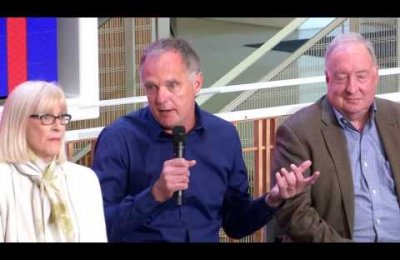Journalism Professor and Co-Director of the Media, Economics and Entrepreneurship program Gabriel Kahn wrote an article for PBS' Media Shift titled Is Media Becoming Device Dependent? The article highlights the need for publishers and news corporations to create content and platforms that work for new devices, in particular the iPad Mini, and the problems they face as they try to keep up with rapid advances. Kahn wrote the publishing, news and content businesses have a big device problem. They are all overly dependent on devices for the delivery of content and have no control over that side of the problem. “While it has been energizing to see the new revenue opportunities emerge from these devices, it’s sobering to look at the costs they’ve saddled publishers with,” Kahn said. “Each new device brings with it an obligation to tailor content for it.”
Revenue opportunities have been great for some organizations like Hearst magazines. At the Dive Into Media Conference held in February, Hearst Corporation Magazine Chief Executive David Carey said since the debut of the iPad Mini, paid electronic subscriptions for Hearst magazines including Cosmopolitan, Elle, and O Magazine have skyrocketed to over 1 million. Kahn points out that for some organizations, optimization is not enough. To prove this point, he cites News Corp.’s The Daily which was optimized specifically for use with the iPad. It’s creators worked with Apple engineers to ensure seamless and impressive design, but it closed after 2 years and $30 million in investments.
Kahn ends the article with a mini look into the history of publishing. He compared tailoring content for wider audience reach in the new digital age to publishing’s paperback revolution in the 1930s when companies printed small paperback versions of books for easy use in times of war. Though he includes his excitement for the new technology devices are requiring, Kahn warns the biggest problem is the speed of change and the ultimate risk of publishers slipping behind.





